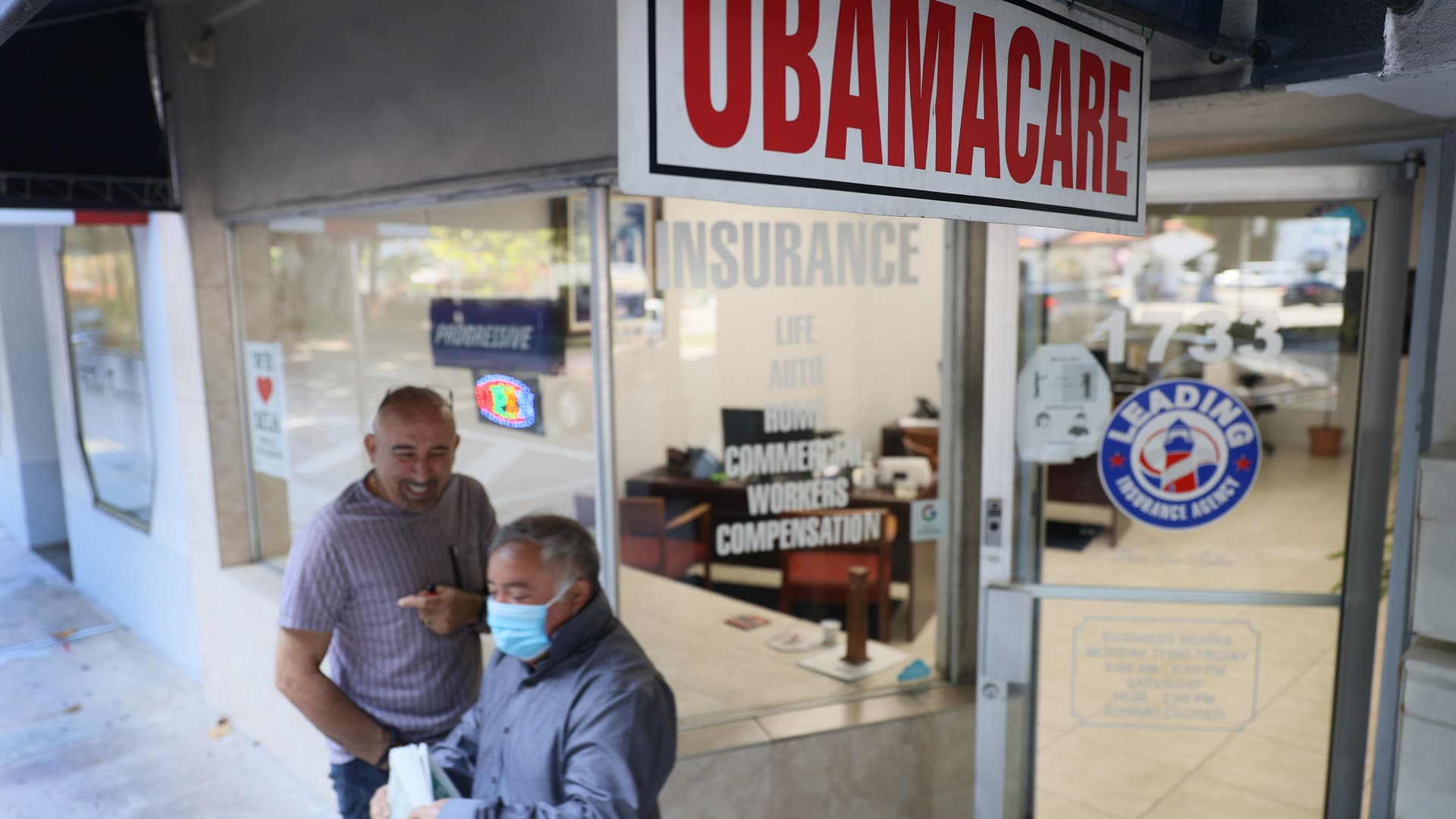
Millions of people in the U.S. are at risk of losing Medicaid this year when coverage protections put in place during the Covid-19 pandemic come to an end in April.
To make it easier for these individuals to transition to other coverage, the Health and Human Services Department has announced a special enrollment period for Obamacare.
People who lose Medicaid coverage from March 31 through July 31, 2024 can apply for Obamacare outside of the normal enrollment period at healthcare.gov if they live in a state served by the federal marketplace, according to new guidance from HHS.
A majority of the states, 33 in total, use healthcare.gov as their insurance marketplace. The 17 states that run their own marketplaces can implement a special enrollment period but are not required to do so.
Individuals who lose Medicaid won’t have to provide any additional documentation to shop for Obamacare. The application will simply ask them whether they lost Medicaid coverage.
Consumers have 60 days to pick a health insurance plan after submitting their application. Once they’ve picked a new plan, coverage will begin on the first day of the following month.
Typically, consumers have to submit documentation of a life change to apply for health insurance outside the open enrollment period, but HHS is streamlining the process for those losing Medicaid.
Medicaid enrollment swelled during the pandemic after Congress basically banned state governments from kicking people off the program for the duration of the public health emergency.
Enrollment in Medicaid has increased by 28% since February 2020 to nearly 84 million people as of September, according to the Center for Medicare and Medicaid Services.
Congress passed a federal spending bill in December that separated the Medicaid coverage protections from the public health emergency. States can start withdrawing coverage for people in April if they no longer meet eligibility criteria or are unresponsive to information requests.
HHS has estimated that 15 million people will lose Medicaid coverage once the pandemic-coverage protections end. Eight million of them will need to transition to other forms of coverage, according to HHS estimates. But 6.8 million will lose Medicaid despite still being eligible for the program, according to HHS.
States are required to make a good faith effort to contact the individual whose eligibility is under review through more than one communication method.






